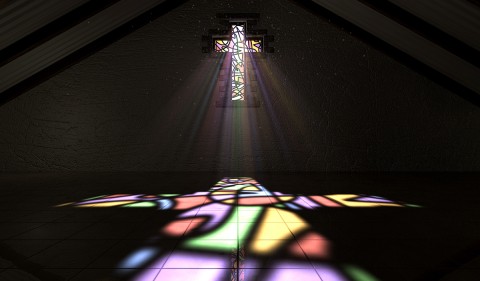The coronavirus pandemic feels like an unending Holy Saturday
We stay home. We look out for others. We wait—but for what?

Holy Saturday is no one’s favorite religious holiday. It lacks the darkness and the drama of a dying Savior. Nor is it bathed in light to celebrate a risen Lord. Its color is a liminal gray.
But it’s where we are, all of us. It’s the season that we are in.
Holy Saturday is a very quiet day. When I was a boy, I was always outraged that so much could be going on in the world while Jesus was resting in his tomb. Today is different. Today, it’s as if the whole world—my world, at least—is observing a regimen of silence in honor of the Lord’s burial. In Wuhan and San Francisco and Atlanta and St. Louis the streets are empty, or at least less traveled. In the rural buffer where I live (a liminal space between a university and surrounding farmland), our road is quieter than usual. No one misses street noise, but it is spring, and I miss the music blasting through our campus, the sounds of laughter and the murmur of learned conversations from tables along the sidewalks.





